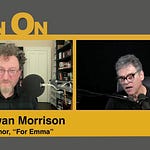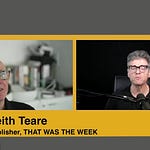According to the historian Matthew Warshauer, there was no giant conspiracy on 9/11. The real story about September 11, 2001, he argues in his provocative new book Creating and Failing the 9/11 Generation, is its impact on Gen Z who he believes should be renamed the 9/11 Generation. 9/11 and its disastrous wars in Iraq and Afghanistan, he argues, have created a lost generation of young Americans without faith in the country’s institutions or elected officials. They’ve been “cast out of the Disneyland” of a unipolar world, he warns, and their cynicism and distrust is only compounding the seemingly never-ending political, economic and cultural crises of the United States over the last quarter century. Rather than the internet and social media, he believes, 9/11 is the root cause of America’s current age of anxiety.
Matt Warshauer is a professor of history at Central Connecticut State University, his under-graduate alma mater, where he learned that passionate, devoted professors can change lives. Originally bored and uninterested in school, he bounced around the country with his family, attending three different high schools in four years – from California to Illinois and then ultimately to Connecticut. He didn’t even want to attend college, but compromised with his parents by going to Norwalk Community College for a few semesters and then transferring to Central. Even upon his initial arrival at Central Connecticut State University (CCSU), Warshauer’s focus was not particularly academic. He studied marketing, but majored in partying. It wasn’t until he met professors like Norton Mezvinsky (History) and Barry Leeds (English) that Warshauer’s mind was turned on. He has been fascinated with American culture ever since and, basically, trying to figure out how the United States got to where it is today. One of his key interests is the paradox – a core dispute about the meaning of the nation – that has always existed in American society and which is so apparent today with the election of Donald Trump and the extreme divisions that cut to the core of who we are as a people. Warshauer’s study of “the paradox” first focused on early American political and constitutional history, particularly from the nation’s founding to the Civil War. Books and articles on Andrew Jackson, slavery, and the political divisions that led to the Civil War were the result. Most recently, Warshauer has turned his focus on 9/11 and memory.
Named as one of the "100 most connected men" by GQ magazine, Andrew Keen is amongst the world's best known broadcasters and commentators. In addition to presenting KEEN ON, he is the host of the long-running How To Fix Democracy show. He is also the author of four prescient books about digital technology: CULT OF THE AMATEUR, DIGITAL VERTIGO, THE INTERNET IS NOT THE ANSWER and HOW TO FIX THE FUTURE. Andrew lives in San Francisco, is married to Cassandra Knight, Google's VP of Litigation & Discovery, and has two grown children.













Share this post